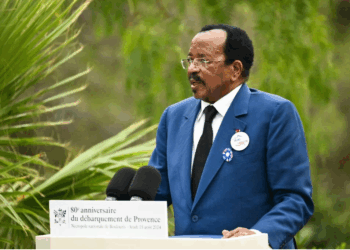The German government fell into turmoil on Monday after Chancellor Olaf Scholz lost a confidence vote in Parliament, exacerbating Europe’s leadership crisis amidst escalating economic and security challenges.
The ongoing war in Ukraine has intensified, with Russia issuing grave threats against Kyiv and its allies. The imminent inauguration of U.S. President-elect Donald J. Trump has further heightened uncertainties around transatlantic trade and military alliances. Adding to the instability, France’s government—a key partner of Germany in leading Europe—also collapsed earlier this month.
As Europe’s largest economy transitions to a caretaker government, new elections are now slated for February 23, marking only the fourth snap election in Germany’s modern history. The dissolution of the current government, decided by a parliamentary vote of 394 to 207, comes nine months ahead of the originally scheduled elections, underscoring the nation’s deepening political instability.
Chancellor Scholz’s three-party coalition fractured in November following prolonged internal disputes, leaving him without the parliamentary majority needed to govern effectively. The collapse ushers in a period of uncertainty, with a permanent government unlikely to be established until at least April or May, pending coalition negotiations among seven viable political parties.
Polls indicate that the conservative Christian Democrats are positioned to lead the next government, with Scholz’s Social Democrats trailing significantly. The campaign leading up to the elections is expected to focus on critical issues, including economic recovery, immigration, defense, and the war in Ukraine. Germany, like France, faces internal divisions over economic reforms, budgetary policies, and growing voter concerns over immigration and national security.
Adding to Europe’s woes, President Vladimir V. Putin of Russia has escalated nuclear threats amid the conflict in Ukraine, while Europe remains apprehensive about its trade relationship with China and the implications of Trump’s return to power in the United States. These global pressures compound the leadership vacuum created by political turbulence in both Germany and France.
Scholz, whose government narrowly avoided a recession this fall, faces criticism over his cautious approach to supporting Ukraine militarily. While Germany has become the largest European donor of weapons to Ukraine, Scholz has resisted supplying advanced offensive systems like long-range missiles, emphasizing a balanced approach to national security. Despite his recent rise in personal approval ratings, his party remains far behind in voter support.
Friedrich Merz, leader of the Christian Democratic Union, has emerged as the frontrunner to succeed Scholz as chancellor. Speaking in Parliament, Merz accused Scholz’s government of leaving Germany in an unprecedented economic crisis. Other key players include Christian Lindner of the pro-business Free Democrats and Robert Habeck of the Greens, both of whom held prominent roles in Scholz’s coalition.
Forming a new coalition will be challenging, given the fractured political landscape. Mainstream parties have ruled out alliances with the far-right Alternative for Germany (AfD), which has gained traction in recent elections, particularly in eastern Germany. The AfD’s rise—alongside the emergence of the extreme-left Sahra Wagenknecht Alliance—signals a shift in voter sentiment but complicates coalition-building.
As Germany braces for a grueling winter election campaign, the European Union faces a precarious moment. “These crises are hitting the EU at the worst possible time, with its traditional engines of stability—Germany and France—engulfed in internal chaos,” remarked Jana Puglierin of the European Council on Foreign Relations. The outcomes of Germany’s elections and subsequent coalition negotiations will have profound implications for Europe’s future amid unprecedented geopolitical and economic challenges.









